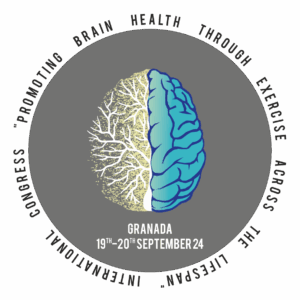
Imagine a world where your own mind could generate enough power to light up a small bulb—no wires, no batteries, just the incredible energy of your brain. It might sound like something out of a sci-fi story, but thanks to scientific advances, we are beginning to understand how the brain’s natural electrical activity can be harnessed in fascinating ways. This astonishing possibility opens a door to new frontiers in neuroscience, renewable energy, and even everyday convenience, making us wonder—could our thoughts someday power our homes?
===Light Up Your World: How Your Brain Generates Electric Power
Your brain is a bustling hub of electrical activity, constantly firing tiny signals that coordinate everything from your heartbeat to your creative thoughts. Neurons, the nerve cells in your brain, communicate by transmitting electrical impulses known as action potentials. These impulses are generated by the movement of charged particles across cell membranes, creating tiny electrical currents that ripple through the brain’s intricate network. Although these currents are minuscule, they are a testament to the brain’s natural bioelectricity—powerful enough in aggregate to inspire innovative ideas about energy.
Scientists have been exploring how to tap into this bioelectricity for practical use, and remarkable progress has been made. Researchers are developing sensitive devices called bioelectronic sensors that can detect and even amplify the brain’s electrical signals. Imagine a future where wearable technology captures your neural activity and converts it into usable electrical energy. While we’re not quite at the point of lighting a bulb directly from thoughts, these pioneering methods demonstrate the potential for turning the brain’s electrical impulses into a renewable power source—one thought at a time.
The concept of harnessing brain-generated electricity also invites us to think about the brain’s own energy efficiency. Our brains use about 20% of our body’s total energy, despite accounting for only around 2% of our body weight. This high energy demand highlights just how dynamic and powerful our neural activity truly is. As science progresses, we may find ways to channel this activity into small-scale energy applications, creating a future where your brain’s natural electrical output could contribute to your electronic needs in surprising ways.
===Unlocking Brain Power: Bright Ideas from Your Mind’s Electricity
Unlocking the secrets of your brain’s electrical power could revolutionize how we think about energy consumption and personal empowerment. Imagine a device that could harness your neural impulses to power a light bulb, a phone, or even small appliances. Although these ideas are still in their infancy, experimental projects are already demonstrating that with the right technology, the electrical signals from your brain can be captured and converted into usable energy. This opens an exciting frontier: turning the natural electrical activity of your mind into a renewable, personal power source.
This concept isn’t just about powering gadgets; it’s also a metaphor for unlocking the untapped potential within our own minds. Every thought, emotion, and movement creates a tiny electrical current—if we learn to harness and amplify this energy, the possibilities are endless. Think about a future where your focus and mental effort could generate enough power to charge your devices, or where meditation and mindfulness could directly contribute to your energy needs. It’s a cheerful reminder that your brain is not just a thinking machine but also a potentially powerful energy generator.
Innovations in neurotechnology and bioenergy are paving the way for this exciting future. Researchers are exploring ways to develop brain-powered devices that can seamlessly convert neural signals into electrical energy. While practical applications may still be on the horizon, the promise of powering a light bulb with your own brain’s electricity is inspiring and motivating. It encourages us to see our minds as not only the seat of creativity and thought but also as a natural, renewable energy source waiting to be unlocked. Perhaps, someday soon, your bright ideas will literally light up your world!
The idea that your brain can generate electricity to power a light bulb sparks the imagination and highlights the incredible potential of bioelectricity. As science advances, the line between mind and machine blurs, bringing us closer to a future where our thoughts and neural activity could contribute to sustainable energy solutions. Until then, keep dreaming, thinking, and imagining—because your mind might just be more powerful than you ever realized. Your bright ideas aren’t just sparks of creativity—they could be the sparks that light up the world!






